Ginger’s 2019 Reading List (With Tips for Creating Your Own)
Despite knowing how important it is, or how much we love it, many of us find it hard to make regular time for reading. That’s why one of the best strategies is to start your year off with a reading list of books you want to get to, and commit to reading at least those. How many you add to your list isn’t nearly as critical as figuring out which books are important or interesting enough to include, so here are some tips from Ginger on creating your own reading list, along with plenty of his personal picks for 2019 in case you need some inspiration!
“If you want to be a writer, you must do two things above all others: read a lot and write a lot. There’s no way around these two things that I’m aware of, no shortcut.”
With those words, in his brilliant On Writing: A Memoir of the Craft, Stephen King lays down a challenge to everybody who claims to want to be a writer – read. After all, it was probably a love of books that made most authors want to start writing in the first place. I know it was the tales of Ian Fleming‘s James Bond and Leslie Charteris‘ The Saint which led to me penning my first adventure stories as a teenager; and today I’m excited to be able to make a living from writing rip-roaring tales in that same mold.
But it’s not just writers that need to read more – everyone can benefit from it, and most fans of reading aren’t writers at all.
Still, whether you read because you love to lose yourself in fantastic worlds or because you want to learn something new, or because you think it will help you become better at your own craft, you have to find the time to actually do it.
I’ll be the first to admit that the older I get, and the busier I become, reading is often one of the first hobbies that gets shunted to the sidelines. I know that I spent so much of my time editing other people’s books in 2018, along with writing my own, that I barely got any personal reading done; and had a stack of real books on my shelf and eBooks on my Kindle that I never got a chance to open.
That’s why one of my resolutions in 2019 was to do exactly what Stephen King suggested – and read a lot. If you’re a regular bookworm, this advice may not apply to you – but I’ve got a feeling it applies to a lot of people reading this. The demands of family and work often take precedence over reading, and what time we do have available often gets swallowed up by social media and other distractions. I supported my resolution to read more by promising to be on Facebook less (and an added advantage was that I got to avoid all my friends’ political posts for a while.)
It’s been less than a month, but I’ve devoured three books since my resolution – and I’ll admit that it has definitely helped my writing process. It’s not just the experience of entering another writer’s headspace – tasting their words on your own lips, and creating an image of their vision inside your head. It’s also a positive experience because it forces you to sit down and commit to something – to read through a book from beginning to end and be present for the journey. In our era of social media – in which most articles seem like they’re written to be read in two minutes or less, and many people only scanning the headline before clicking ‘like’ – it’s a positive thing to delay your gratification and only receive that mental dopamine hit when you finally reach the words “The End”.
Writing your own novel or book is like that – a commitment. In addition to simply expanding your range and experience, I think this is one of the reasons Stephen King recommends reading so much; because it forces you to exercise your mental muscles in a way most of today’s modern distractions don’t. You can’t hope to be a writer if you lack the mental discipline to be a reader; and an added advantage is that as far as forms of mental exercise go, reading for pleasure is one of the most rewarding and enriching.
I challenge you to start a reading program for 2019. Not just to read a lot of books, but to think very hard and strategically about the books you choose to read. Test and expand your palette. There’s no danger in reading a book in a genre or style that you wouldn’t normally consider – it’s like trying exotic food. If you like it, great, you’ve found something new! If not, you can retreat back into the comfort of your regular genre, or by reading more books by authors you already enjoy. Either way, you’ll revitalize your enthusiasm for writing, and remind yourself why you decided to pursue this passion in the first place.
For what it’s worth, I’m going to take you through some of the books I’ve read or plan to read in 2019 – and explain how I came about adding them to my own reading list. Hopefully it’ll help spark a bit of inspiration for creating your own list, if not from the actual books themselves then perhaps from the reasons I chose them.
I’d also be thrilled if you’d share your thoughts or some book recommendations of your own in the comments, and don’t forget to share why you picked them.
#1 – Read a Classic Book You Never Have Before
So, I came up with this idea of a 2019 reading list while I was in Chicago – during the same trip in which I visited the American Writer’s Museum. For a guy who loves classic adventure stories, another point of pilgrimage had to be the birthplace of Ernest Hemingway, in Oak Park – just a few miles west of Chicago.
I’ve always professed to be a huge fan of Ernest Hemingway, and have waxed lyrical about his journalistic writing style and what he called “the iceberg method” – which is when you strategically omit more details than you include to allow a reader to use their own imagination to fill in the blanks. Hemingway’s style was very similar to that of Ian Fleming, one of my favorite authors, and I think Fleming was clearly influenced by Hemingway’s attention to detail, brevity and the robust masculinity of his books.
Or, at least, that’s what I’d said for years!
But I have a confession to make. As much as I professed to be a fan of Hemingway, I’d never really read much of his work. Like, at all. I had an opinion about it based more on the image that Hemingway’s writing conjured in popular culture, rather than the writing itself.
It’s kind of embarrassing to admit this, but I don’t think I’m entirely alone. In fact, this realization came to me while I was at the American Writer’s Museum and heard somebody scoff about the inclusion of Atlas Shrugged in the row of quotable literature. In recent years, it’s become very popular to deride and mock Atlas Shrugged, but I very strongly believe that 99% of the people who ‘hate’ the book have never actually read it and are just regurgitating other people’s opinions.
I think a lot of people have opinions about books they haven’t actually read; and that’s why I’m not too shy to admit this failing about myself. In fact, I was in the middle of complaining about people who have an opinion about a book without having actually read the book when I realized that I was guilty of that exact same offense. I’d gone to pay my respects to Hemingway without having read any significant amount of his writing; and I kind of owed it to myself – and him, I guess – to correct that oversight.
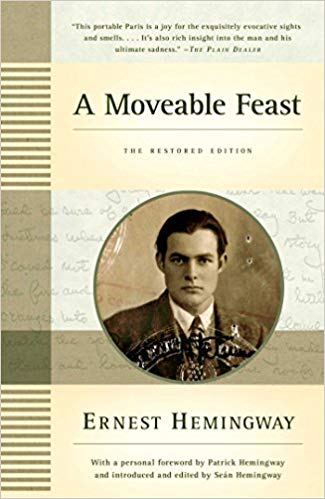 So, that’s why the first book on my reading list was Ernest Hemingway’s A Moveable Feast; a memoir he wrote in the 1950s about his time as an impoverished writer in Paris following the First World War. It appealed to me because it was short (a quick win for the reading list) and it was also set in Paris – where I worked for four years.
So, that’s why the first book on my reading list was Ernest Hemingway’s A Moveable Feast; a memoir he wrote in the 1950s about his time as an impoverished writer in Paris following the First World War. It appealed to me because it was short (a quick win for the reading list) and it was also set in Paris – where I worked for four years.
I’ll admit it was a fascinating read. I appreciated his writing style but it didn’t quite grab me in the same way I’d professed that it had before I’d actually read some of it! His reminisces of encounters with characters like F. Scott Fitzgerald and Gertrude Stein were fascinating (if unflattering) and so many of the things he wrote about – the café culture, the streets and boulevards, and even the Shakespeare Bookshop on the left bank – were achingly familiar to me; even though I’d lived that experience nine decades after he had.
It definitely inspired me to focus on writing in 2019, and it also helped crystallize some of the facets to my writing style that had helped me achieve what meager success I have. Specifically the advice on how to get started writing: “All you have to do is write one true sentence. Write the truest sentence that you know.”
As I’ve thrown myself back into writing on a daily basis, I think every day of this next quote before I succumb to the temptation of ‘not being in the mood’: “There is nothing to writing. All you do is sit down at a typewriter and bleed.”
Some days, when I start off uninspired or distracted, it is like forcing your own blood onto the screen – but then it coagulates into something meaningful and the story flows from there.
For the rest of 2019, I have two more books by Hemingway I’ve challenged myself to read – A Farewell to Arms and For Whom the Bell Tolls. I’ll let you know how they work out!
#2 Read a Book People Have a Preconception About
When it comes to the issue of people people having an opinion about a book they hadn’t actually read, my go-to example is Atlas Shrugged because it’s a book that was lauded as a feminist masterpiece when I was studying English twenty years ago, and now today’s generation of feminists deride it as a prayer to selfishness and unrestrained capitalist excess. There are conservatives and libertarians who adore the book and the philosophy it expounds (so-called ‘Randroids’ by detractors) and there are people who absolutely loathe it – to the point that one friend told me “I like Atlas Shrugged because it simplifies the whole process of making friends. If somebody says they like it, I know I shouldn’t bother being friends with them.”
The only problem is that regardless of whether a person claims to love or hate the book, chances are fairly good that they haven’t actually read it. They’ve read things about it, and they’ve read things written by people who’ve also read things about it; but hardly anybody who has a passionate opinion about Atlas Shrugged one way or another has actually read it.
And can you blame them? It’s 1,188 pages long and sixty of those pages are simply the main character expounding his political philosophy. It’s an interesting book, and it’s full of ideas that resonate with today’s society, and I think there are a lot of personal lessons you can take from it… But it’s certainly not a good book, and it’s definitely not a book you should use to form the basis of a society from! I did actually read it – and I thought the writing style mirrored the undisciplined style of Rand’s contemporary, Ian Fleming, in that it was full of interesting ideas and eminently quotable; but it was rambling, kind of ranty, and some of the plot involved a major stretch to string together.
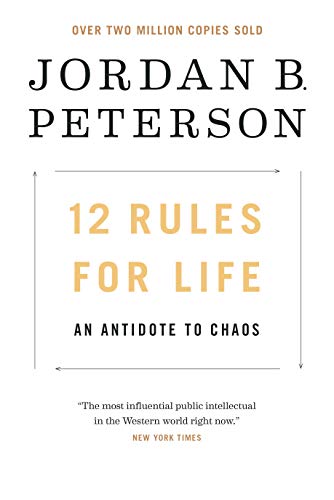 But I’m allowed to say that about it – because I’ve actually read it! Don’t try to argue with me unless you’ve read it too… And, if you haven’t yet, I’d suggest a lot of other books to read first.Anyway – that’s why in 2019 I wanted to read a book that I had a preconception about; to see whether that preconception actually held up.
But I’m allowed to say that about it – because I’ve actually read it! Don’t try to argue with me unless you’ve read it too… And, if you haven’t yet, I’d suggest a lot of other books to read first.Anyway – that’s why in 2019 I wanted to read a book that I had a preconception about; to see whether that preconception actually held up.
The book I ended up choosing was non-fiction – and practically as controversial as Atlas Shrugged. It was Jordan Peterson’s 12 Rules for Life, and if you mention that name on Twitter you’ll probably be attacked by a crowd no-less rabid than the ones who complain about Atlas Shrugged. And about as many people will have actually read it.
Jordan Peterson is a clinical psychologist and professor from the University of Toronto who wrote a practical ‘guide to life’ based off a series of rules he posted to the Internet a few years ago. Since then, he’s become embroiled in countless controversies and derided as an ‘icon of the alt-right’ and even compared to Hitler by the faculty of his own university.
However, the people who think like that generally haven’t read his book – so I gave it a chance.
And it turns out to be a really quite remarkable and practical guide to ways you can improve your life – and they’re simple philosophies like “stand up straight with your shoulders back.” What’s more, this advice isn’t just his opinion – Peterson backs it up with real-life examples including how the posture of a defeated lobster can influence its levels of serotonin; and this behavior is mirrored in humans. So, telling somebody to ‘stand up straight’ isn’t just fatherly advice; it’s actually proven to increase confidence and boost happiness and there are stacks of papers demonstrating this.
Other advice includes “Set your house in perfect order before you criticize the world” which is one of the more controversial ones. Peterson argues that if you haven’t got your own life together, maybe you’re not qualified to try and set the world to rights; and in our age of populist politicians (whether it’s Donald Trump or Alexandria Ocasio-Cortez) it’s advice that rings uncomfortably true. I’ll admit that I stopped telling people how we could “clean up the environment” when I realized I couldn’t even keep my own bedroom tidy.
“Do not let your children do anything that makes you dislike them” is a fantastic chapter that every beleaguered parent needs to read, and I don’t think anybody can argue with the advice to “tell the truth.” Given that many people accuse Jordan Peterson of furthering ‘toxic masculinity’ I think his chapter “assume that the person you are listening to might know something you don’t” is pretty interesting, because if every male followed that advice we’d end the issue of ‘mansplaining’ overnight.
In short, I read the book and realized that all the outrage and drama surrounding Jordan Peterson was tripe, and it made me realize that the pandemic of having opinions about books you haven’t even read is more widespread and harmful than I’d ever imagined.
That’s why I suggest you find a book that you have preconceptions about and read it yourself. Only then form an opinion. Does the reality of the book really match the hype?
#3 Read A Book Outside Your Comfort Zone
If you look at the two choices of books above, you might think that I’m just some dumb, kind of conservative guy – and the truth is I’m not, but that is a fair assumption given the two examples of reading material. Therefore when I was assembling my list of books for 2019, I decided I would pick a book that was completely out of my comfort zone as a way to gain a new perspective on things.
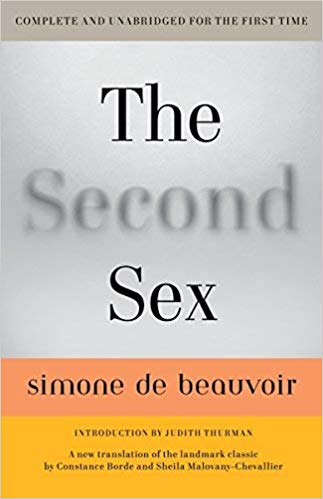 I think this is a very important thing to do, because in many ways the books we read are like the food we eat; and a lot of us are fussy eaters.
I think this is a very important thing to do, because in many ways the books we read are like the food we eat; and a lot of us are fussy eaters.
Just as many people have opinions about books they haven’t read, they also actively seek to read books that don’t challenge their opinions. This is why conservative books by authors like Bill O’Reilly are so massively successful; because they abide by the ‘Fox News Effect’ in which you watch (or read) specific things knowing that they’ll serve you a narrative that aligns with your viewpoint.
When I was assembling the first draft of my reading list, I definitely saw that I was trending this way – not so much the politics, but from a gender and genre bias. I wanted to read H.P Lovecraft for the same reason I’d read Hemingway (because I raved about Lovecraft as an author without actually having read much of his work.) I wanted to finish Biocentrism by Robert Lanza because it aligned with my ideas about quantum physics, religion and the Law of Attraction, and I wanted to read Joyland by Stephen King because he’s one of my favorite authors.
But once I’d written these things down, I realized that my reading list looked like that of a neckbearded 17-year-old. I definitely needed some diversity. Given that I’d made the controversial choice to read 12 Rules for Life, I tried to think of the exact opposite type of book; and ended up choosing The Second Sex by Simone de Beauvoir.
It wasn’t an entirely out-of-the-box choice. I’d once had a girlfriend studying French literature so it was a book I was familiar with. It also appealed to me because of Beauvoir’s long-standing love affair with existentialist author Jean-Paul Sartre and the whole Paris connection. Yet, at the same time, it was an incredibly significant book in the evolution of modern feminism, and one that I probably would never read otherwise. In my meat-and-potatoes diet of Hemingway and Lovecraft, this was most definitely a plate of sushi.
But in real life I discovered I like sushi – so I’ll let you know how The Second Sex tastes!
#4 Read a Book Recommended by Somebody You Respect
I wasn’t done patting myself on the back for choosing The Second Sex, but I did admit to myself that the idea of expanding my reading list could probably do with a beefier option than a single seventy-year-old book on feminism. That’s why I decided to ask some of my friends with very different life experiences, attitudes, beliefs and backgrounds to me for reading list recommendations. I asked them to recommend a single book each, which I’d read with a totally open mind and without making any preconceptions whatsoever.
I’ve started off with three recommendations, which I’m really excited about.
An Altar in the World: A Geography of Faith by Barbara Brown Taylor was recommended to me by the vicar of our church, a woman with a very different background than me but also someone I respect immensely. Every week I find her sermons to be incredibly challenging, thought-provoking and inspiring; and I knew that any book she recommended would be just as eye-opening. I’m really looking forward to this one.
The Forty Rules of Love: A Novel of Rumi by Elif Shafak was recommended to me by a fellow-writer, reporter, creator and teacher who I’d really enjoyed collaborating and talking with. His Lebanese-American background is very different to mine (I was born in the UK) and his interest in stories and narratives from cultures I’ve had very little exposure to promised to make this a really interesting recommendation.
The Return: Fathers, Sons and the Land in Between by Hisham Matar was recommended to me by one of the first friends I made in America, and likewise the memoir starts with the familiar (from the perspective of a university student in England) and then goes into bold new territory when the narrative takes the author to Libya. Once again, this Pulitzer Prize-winning book is one I never would have thought of reading otherwise – and that’s one of the most important reasons why it’s important and exciting for me to try it.
#5 Finish a Book (or five) You Started But Never Finished
I’m pretty sure my wife would be a fan of that new show on Netflix by Marie Kondo – Tidying Up. Or at least she might have been, until Kondo argued that you should own fewer than thirty books. Who needs that kind of negativity in their lives?
In any event, that inspired me to take a look at my own bookshelf and Kindle and I realized there were a LOT of books I’d started but never finished – gifts from friends, parents and coworkers or purchases I’d made but lacked the time to complete.
So this suggestion for your 2019 reading list is to actually finish some of the books you already own or started.
I mentioned Joyland by Stephen King, which my wife bought for me years ago and I haven’t opened yet. My father bought me Guns, Germs and Steel and The Rational Optimist and they’re long overdue to be read. My mother bought me Narrow Dog to Indian River and Narrow Dog to Carcassonne and I haven’t opened them yet (she also bought me a vintage paperback called The Honey Badger with the blurb: “The Honey Badger is the meanest animal in the world. It kills for malice and for sport, and it doesn’t go for the jugular – it goes straight for the groin. In that, it has a lot in common with the modern American woman.”)
I have digital copies of Biocentrism to finish, Not Nice, and a whole host of other books. In fact, I’m almost starting to wonder if I have a problem with buying books I don’t finish. In 2019 I’m going to do the digital equivalent of what Donald Duck did to his three nephews when he discovered them with a box of cigars – and force myself to finish every single one even if it makes me sick.
But at some point, I’d had an urge to read these books – so I think I owe it to myself to finally do so.
The Final Suggestion – Get New Books Every Day!
One final suggestion for my 2019 reading list is one I’m especially excited about – a commitment to read books from Hidden Gems each week. Every day, Hidden Gems sends out an invitation to read free copies of the latest books from over a dozen different genres – and if you want to talk about an opportunity to vary your diet of reading material, what better option could you have than that?
What’s more – I think there’s something to be said for enjoying a little comfort food every now again; and by selecting my favorite genres (thrillers and romance) I can also find new books by new authors that are still in my familiar and favorite genres.
If you haven’t already, I’d most definitely recommend signing up to the Hidden Gems free book review program. If you do, the one problem I promise you won’t have in 2019 is a shortage of reading material!


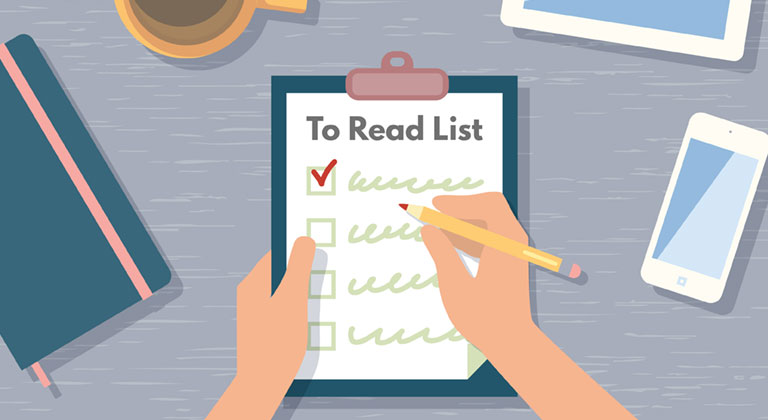

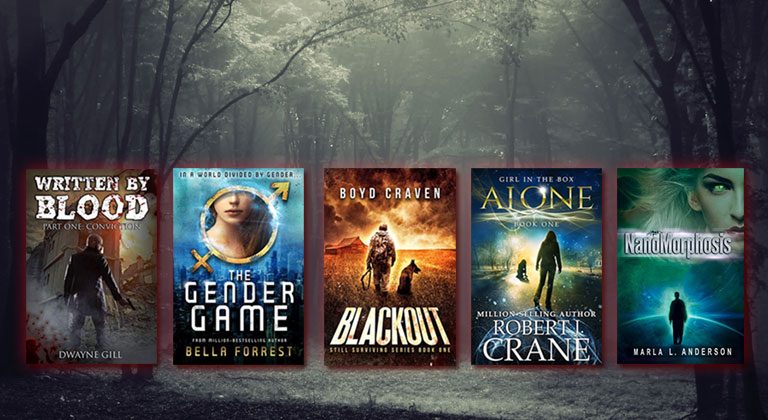
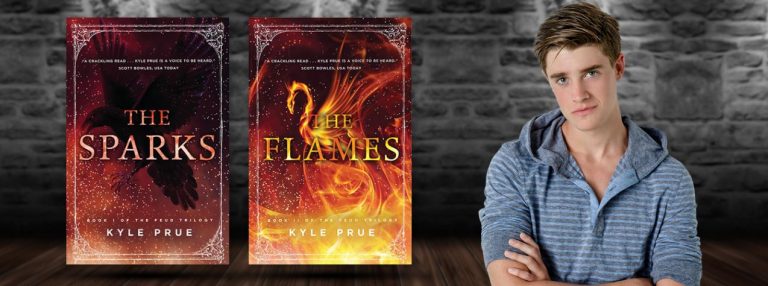

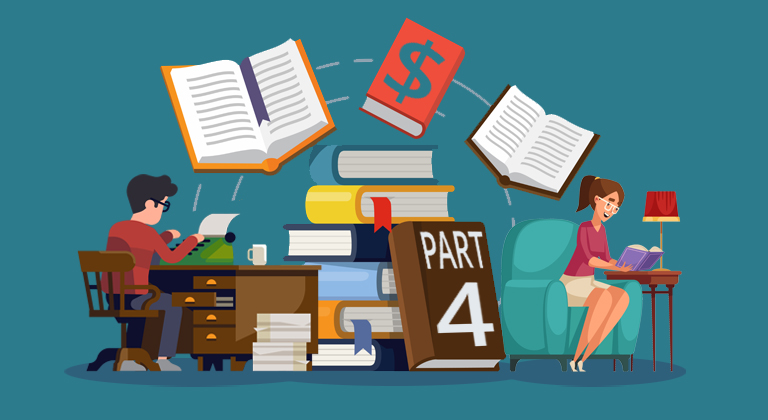
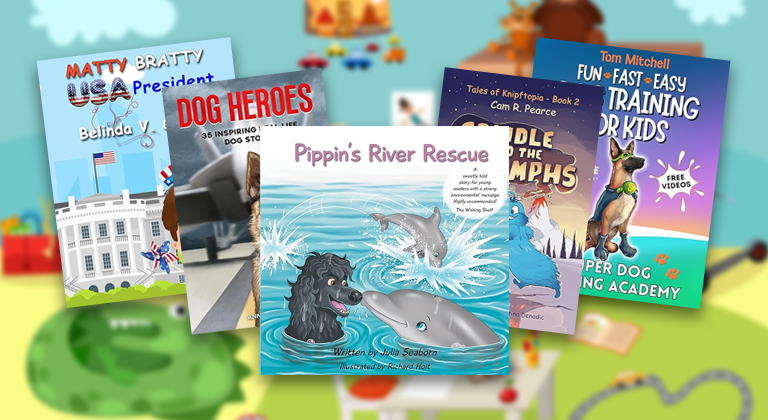
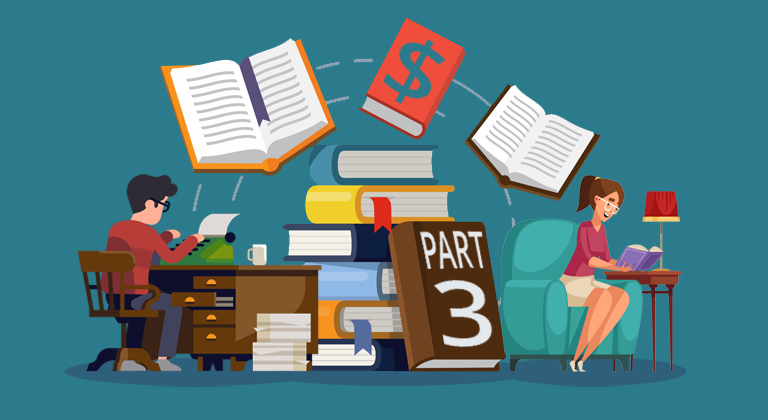
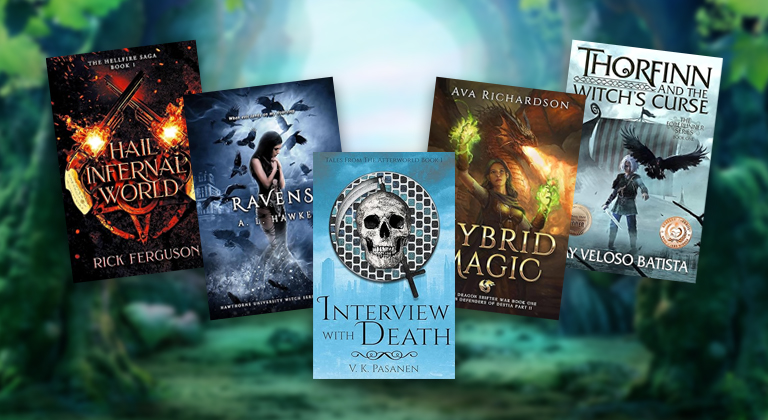
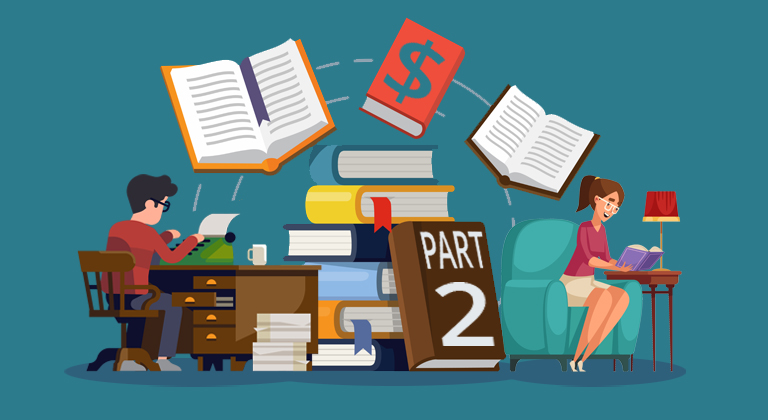
2 Comments